Petals of Health
A Framework for Healthy Living
The Petals of Health were created as a visual representation of what we believe to be the six cornerstones of effective lifestyle medicine.

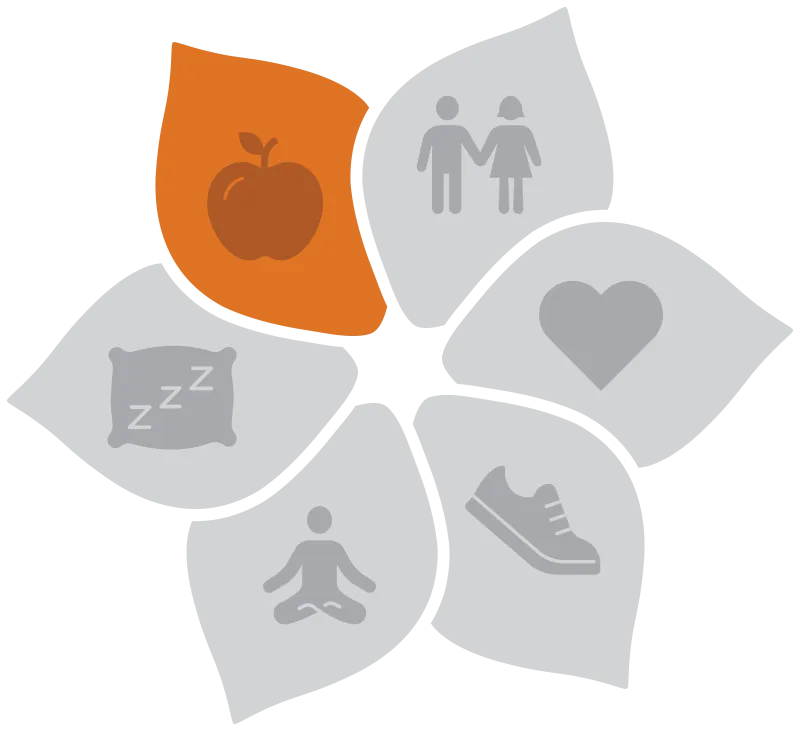
Nutrition
Eating a well-balanced plant-based whole foods including a variety of fruits, vegetables, whole grains, and legumes will help you obtain complete nutrition. Also, make sure that you have reliable source of vitamin B12 and drink plenty of water to keep your body healthy. Here are several accountable websites for great recipes.
Forks Over Knives
PCRM
Eating You Alive
Engine 2
Plant Pure Nutrition
Dr. McDougall’s Health & Medical Center
– Mei Liu, Complete Health Improvement Program (CHIP) Facilitator
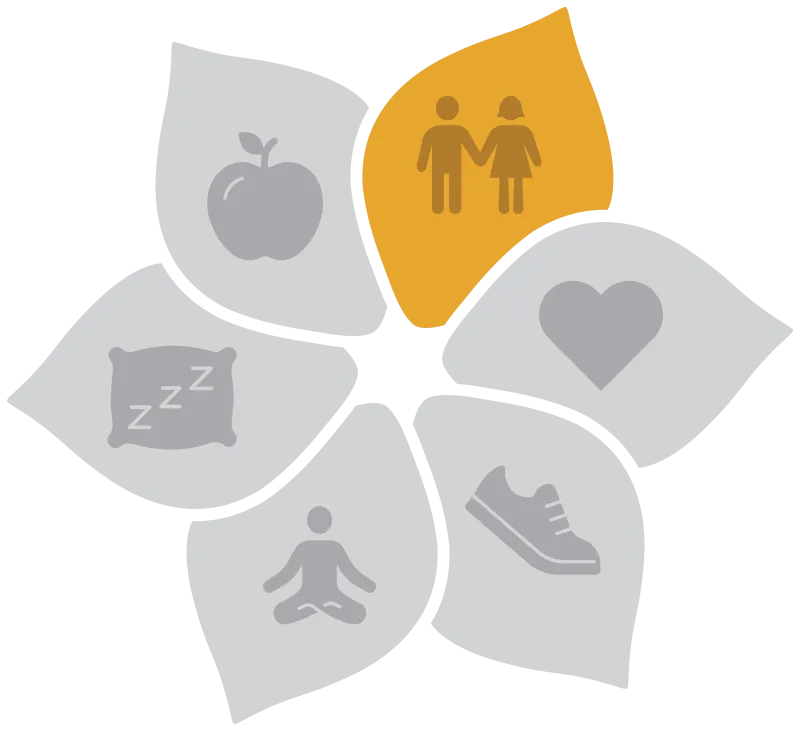
Social Connections
Social connections is your support network. Your connections share your joys and listen to you when you need them. It plays an essential role in reducing your stress and improving your mental wellness. It is simple to connect in this digital society. Text your friend or family a note. Call to have a video chat. It’s easier than ever to keep in touch. However, the physical contact is particularly important in human relationship. With the scare of the new coronavirus, even though hugging and handshaking are not recommended, you can still get out of your chair and give your family and friends an elbow bump or foot tap. If you feel good, let’s say hi and smile to the strangers walking by. You will feel even better!
– Jeng Lai, DPM
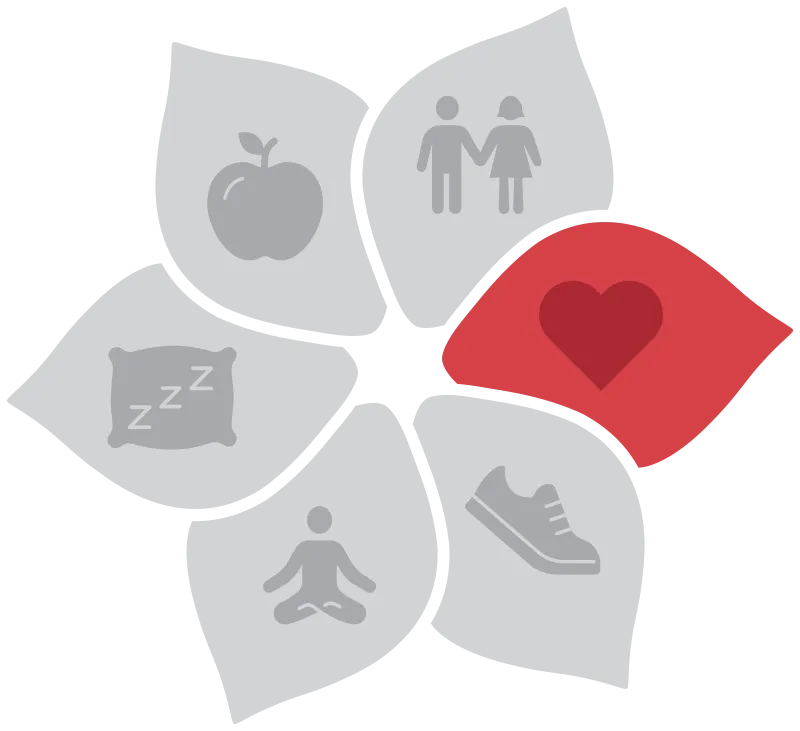
Passion
Make a list of activities that frequently result in you losing track of time while you are doing them (excluding screen time). Pull out your calendar, find a short block of time, and commit to incorporating one of these activities into your week.
– Malia Ray, MD
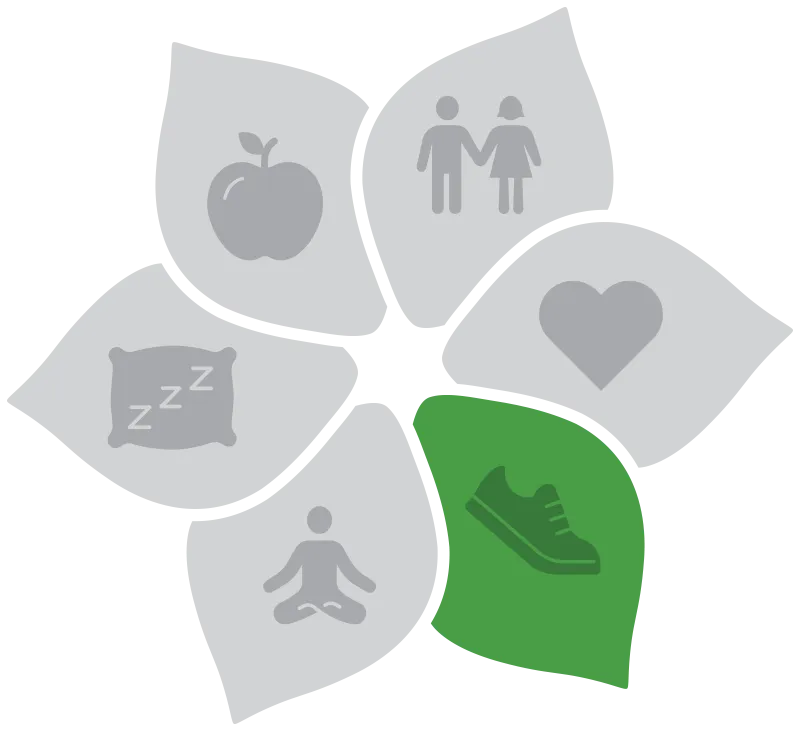
Movement
Simple ways to add gentle constant movement into your day. Moving around for 2 minutes every 20 minutes.
At work:
go for a walk on your breaks
do some squats and marching
stretch your arms high above your head
walk up a couple flights of stairs if they are nearby
jump rope or jumping jacks at your desk
chair or desk push-ups
desk cycle
At home:
walk around during commercials
do light housework while watching TV (ironing, folding laundry, dusting and vacuuming)
– Lori Banks, PTA
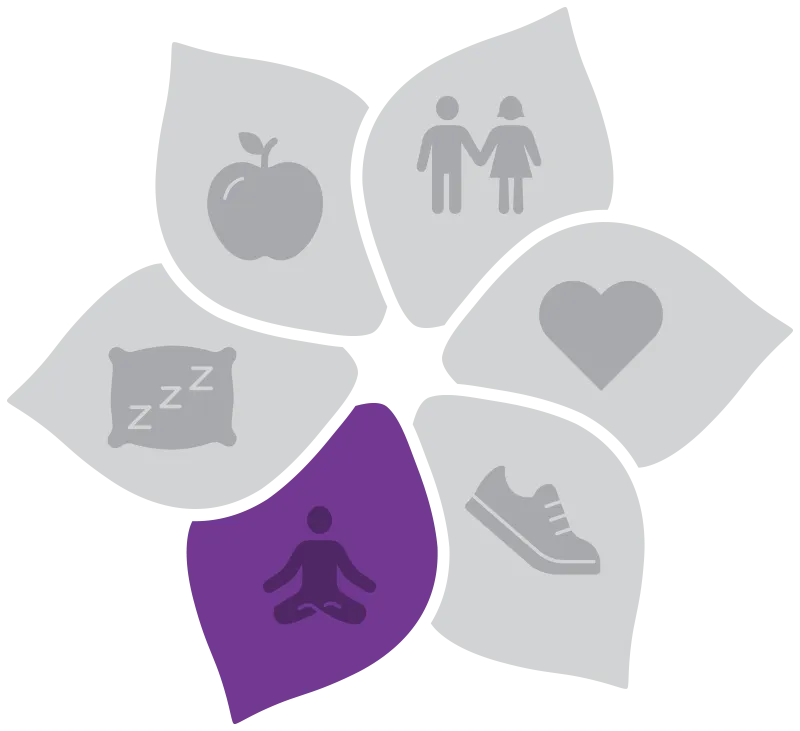
Stress Management
Keeping stress at bay in just minutes a day. Therapeutic grade essential oils can help release tension in the body, uplift the mood, increase focus, and support mental and emotional wellness. Feel free to place a drop of Lavender, Stress away, Lemon or Frankincense in the palm of your hand and cup over your nose and mouth and breathe deeply. Aromatherapy can be used to enhance any of the stress relieving techniques below:
Take a deep breath in for five counts expanding your lower abdomen, hold for 2 counts, exhale slowly for 8 counts completely releasing the air. Repeat 3-5 times.
Speak life over yourself. Pick an affirmation that you can repeat in stressful times. “I choose joy” “I choose happy” “I enjoy life” I am blessed.” When a stressful moment hits, choose to think positively.
Practice neck and shoulder rolls with deep breathing.
Take a walk for five minutes. Take in your surroundings using your five senses.
– Letticia Callies, MA, CCA
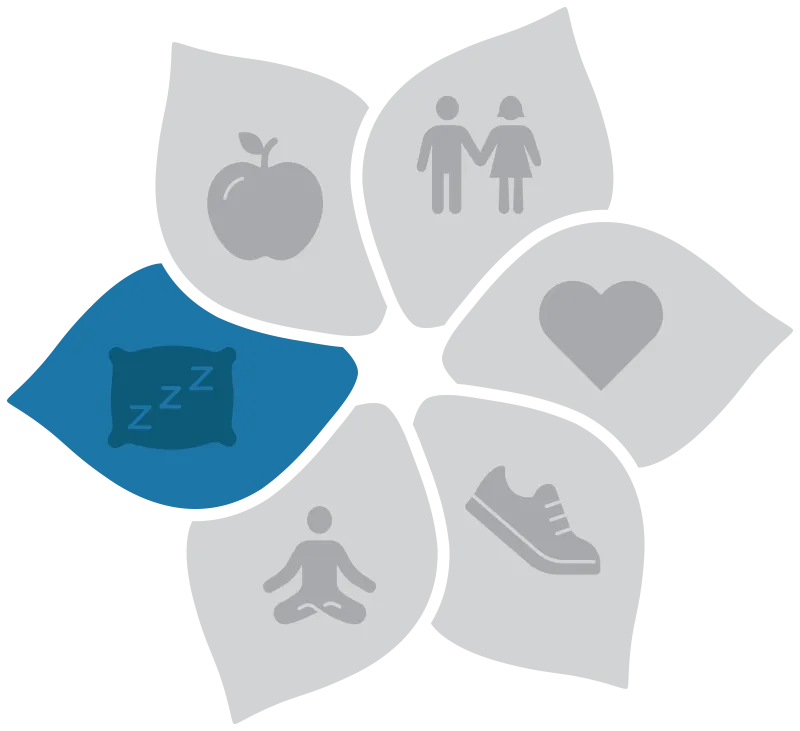
Sleep
Enjoy morning sunlight for 20-30 minutes preferably within the first 2-3 hours after dawn, if possible, outdoors, walking or other physical activity. This optimizes your melatonin production and sets an optimal sleep schedule. Full spectrum light boxes can be used if outdoors is not an option.
Avoid caffeine after 2 PM. Alcohol after 6 PM can cause sleep arousal in the hours after midnight when the blood level is returning to zero.
Avoid vigorous physical activity and screen time at least 2 hours before bed
If problems getting to sleep, try a warm bath or shower before bed
Try to keep the bedroom for sleeping or relationship with your loved one. Love making benefits sleep onset. Yellow spectrum lighting does relax us, lowers stresses and inhibitions.
The most restorative sleep tends to happen between 10 PM to 2 AM, but any sleep is beneficial.
Sleep cycles average 90 minutes, finishing with dreaming (REM sleep). Four cycles are usually enough to allow an alert/normal day. If you awaken after REM sleep and do not have time for another whole cycle, you will have a better day if you start your day then.
– Thomas Harman, MD
Sign up for updates
Be the first to hear about upcoming events and see how Lotus Health Foundation is working in the community.
Stay in Touch: (507) 218-3095 / [email protected] / 3070 Wellner Dr. NE, Rochester, MN 55906
©2025 Lotus Health Foundation | All rights reserved.

